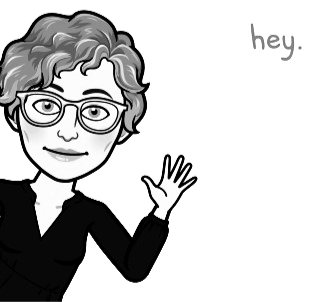Mashups, Remixes & Recreations: The ethics of participatory culture
- Jess Skoczek

- Nov 1, 2021
- 3 min read

My Scottish pen pal used to post me mixtapes of her favourite music. She opened my eyes to Beck, New Radicals, and Cake. I shared my love of Garbage, Bjork and No Doubt. Often, we'd add commentary between the songs and include pictures we'd drawn of our musical heroes. My best friend was one of the three local skaterbois... subcultures attract small memberships when there's only 150 teenagers in the whole town. They would wake up at midnight to record samples from Rage and lay hip hop lyrics over the top. Reading about participatory culture and pop culture in education contexts gave me new insight into the value of these activities, in many ways we were engaging in aspects of Jenkins (2006) participatory culture. The desire to connect, share and create was evident… just with significantly less advanced tech!
The appeal of tools and platforms such as TikTok, Wattpad, Soundtrap, GarageBand, and Instagram is clear. I can see my teen self enthusiastically taking up these opportunities for creation and community. Despite this, I have to admit I have ignored them in my role as an educator and overlooked the opportunities pop culture offers in the classroom. I have seen it primarily as a relationship building tool – a quick reference to Assassin’s Creed or Riverdale can provide remarkable social currency -- and have not leveraged its potential as a way to understand students or offer ‘access to the broader society’s valued knowledge’ (Duncan-Andrade, 2004, p. 216). But how to change this? As a history teacher, aspiring teacher librarian, and former copywrite infringer I decided ethical scholarship and referencing might be a good place to start.
Much like my friends and I recording, adapting and sharing music from the radio or tv, teens frequently engage in questionable behaviour regarding copywrite. But even my limited experience as a content creator on this blog has made me aware that it just isn’t as clear-cut as I’d thought. James (2009, p. 20) argues that young people are ‘redefining identity, privacy, ownership, credibility and participation’ through their engagement with technology. Concepts of ownership are changing with digital media, and collaboration and participation often blurs the line between creator and consumer (James, 2009, p. 45). For example, the very nature of TikTok encourages users to remix, recreate and mashup other users’ content. Features such as ‘use this sound’ easily allow audio to be directly imported from another video. Viral trends are intended to be shared, copied and voiced over. It is therefore unsurprising that the platform is noted for a ‘culture of misattribution’ (Valdovinos Kaye, Rodriguez, Langton, & Wikstrom, 2020). It’s a brave new world out there... but I do still need my years 9’s to reference their sources.
So, I’m setting myself a challenge to authentically integrate some pop culture inspired learning experiences into my classroom, and not just as an engagement tool or a brain break. It’s half way through term four and my exhausted juniors are working on their research units. Perhaps instead of top-down instruction about referencing we could explore ethical scholarship by making TikTok style short form videos about WWI? This would provide a way to practice source attribution, locate creative commons images, and discuss the ‘ethics challenges’ that arise in a participatory culture (Jenkins, 2009, pp. 24-6). Might go down a little better in Period 4 on a Friday too…
I’ll let you know how I go, and would love to hear how you integrate pop culture into learning experiences.
References
James, C. (2009). Young People, Ethics, and the New Digital Media : A Synthesis from the GoodPlay Project. The MIT Press. https://doi.org/10.7551/mitpress/8520.001.0001
Jenkins (2006). Convergence Culture: Where Old and New Media Collide. New York: New York University Press
Jenkins, H. (2009). Confronting the Challenges of Participatory Culture Media Education for the 21st Century . The MIT Press Open. https://mitpress.mit.edu/books/confronting-challenges-participatory-culture
Valdovinos Kaye, D. B., Rodriguez, A., Langton, K., & Wikstrom, P. (2020). You Made This? I Made This: Practices of Authorship and (Mis)Attribution on TikTok. USC Annenberg School for Communication & Journalism.



Comments